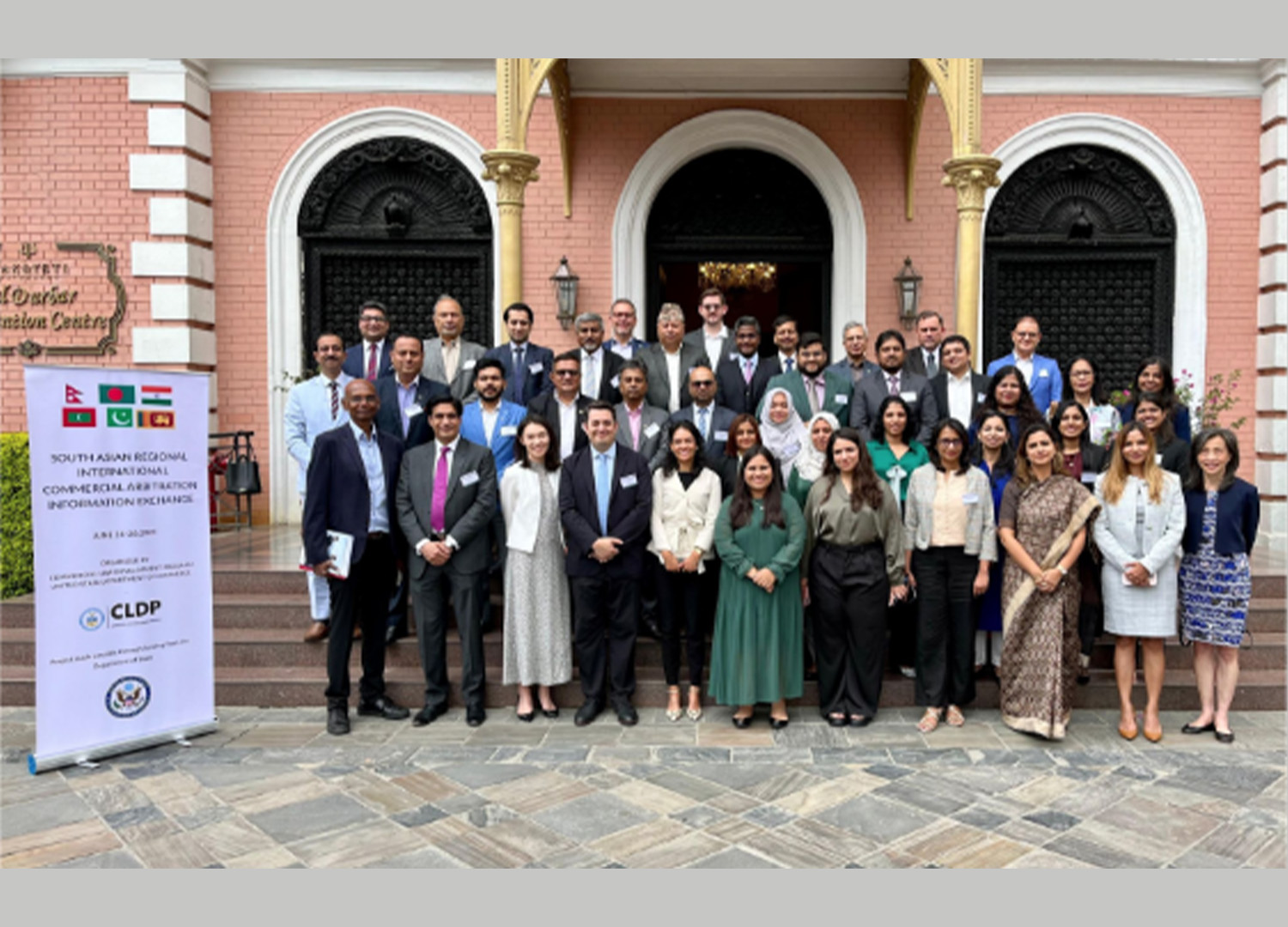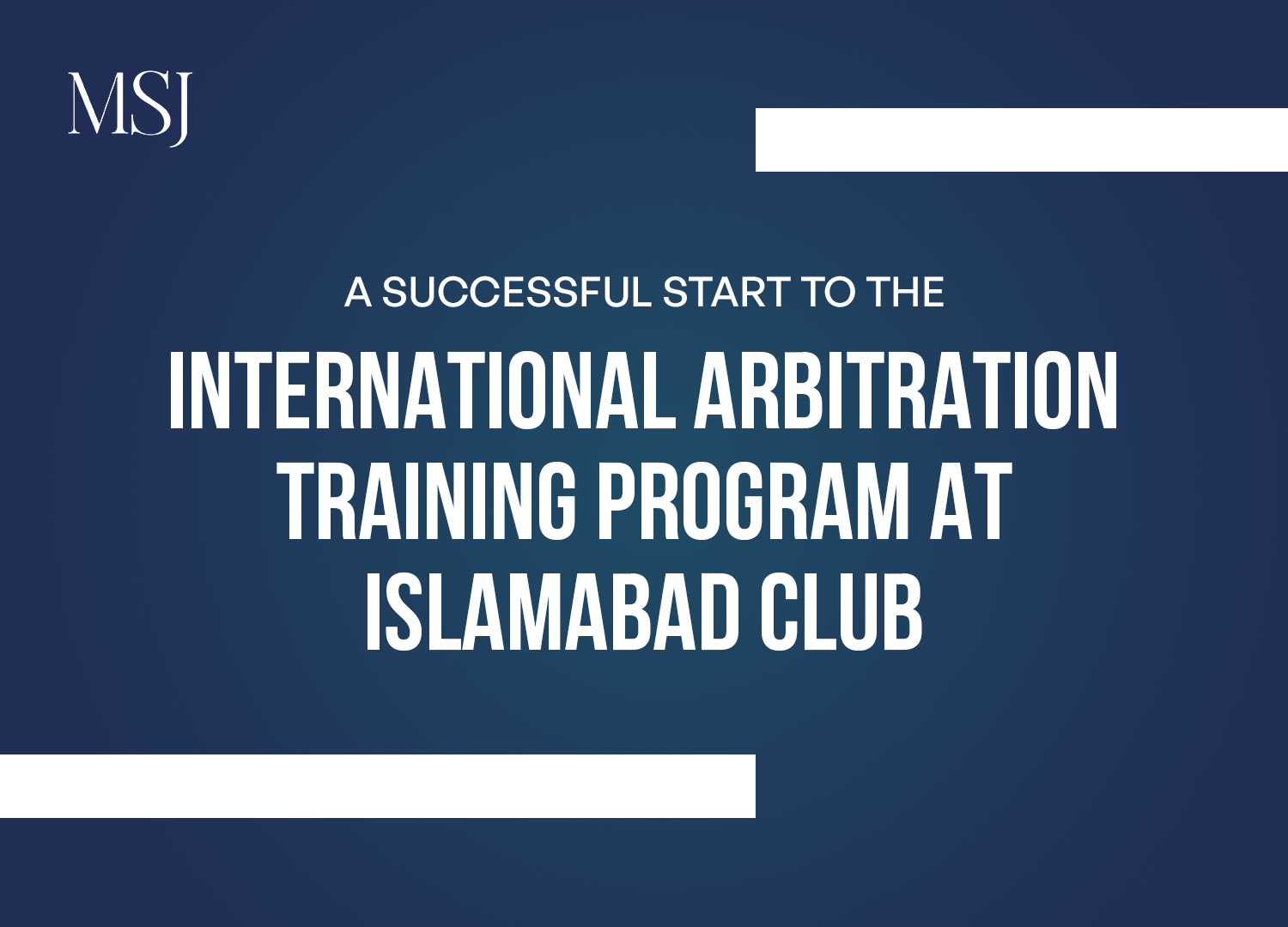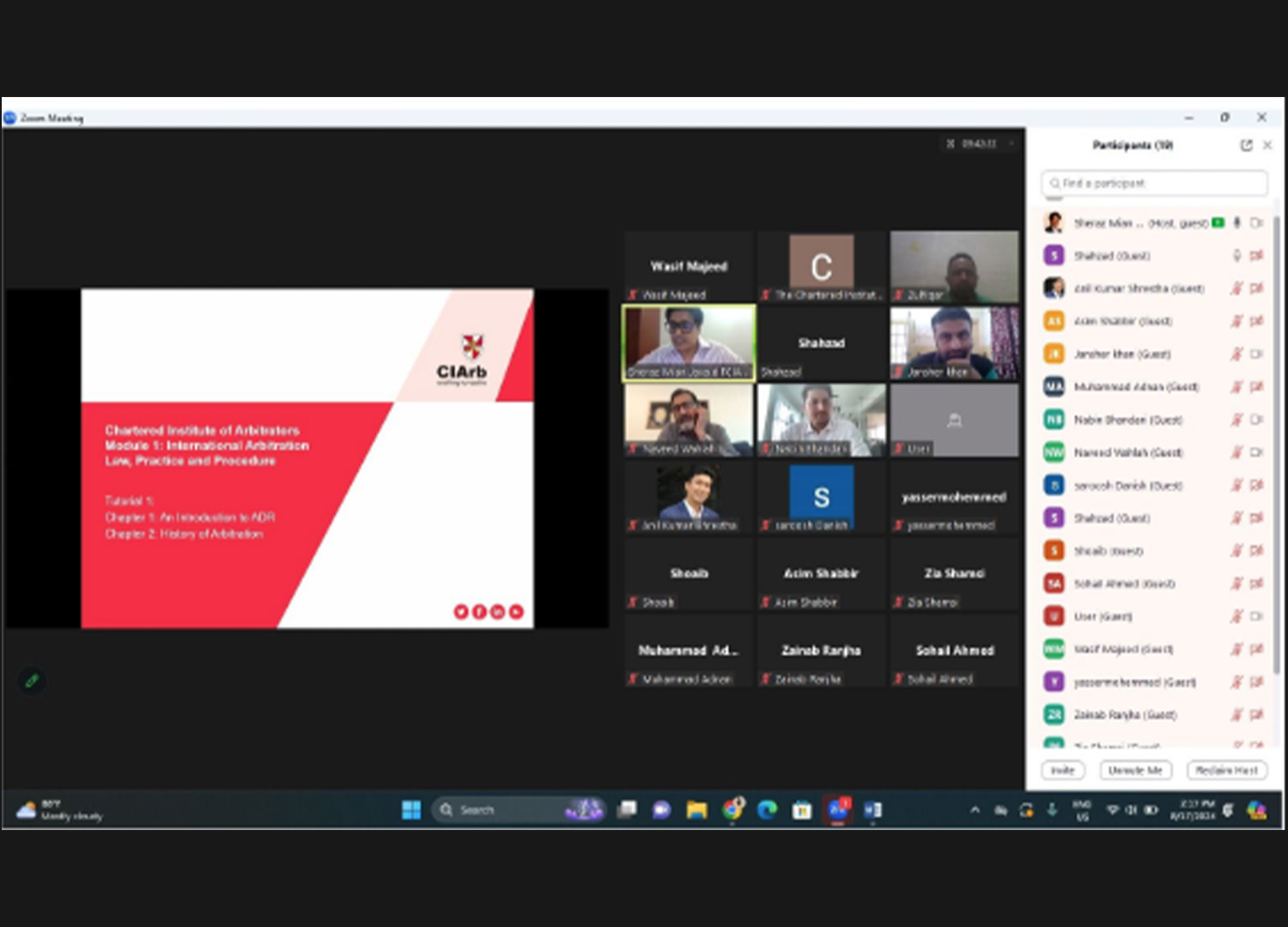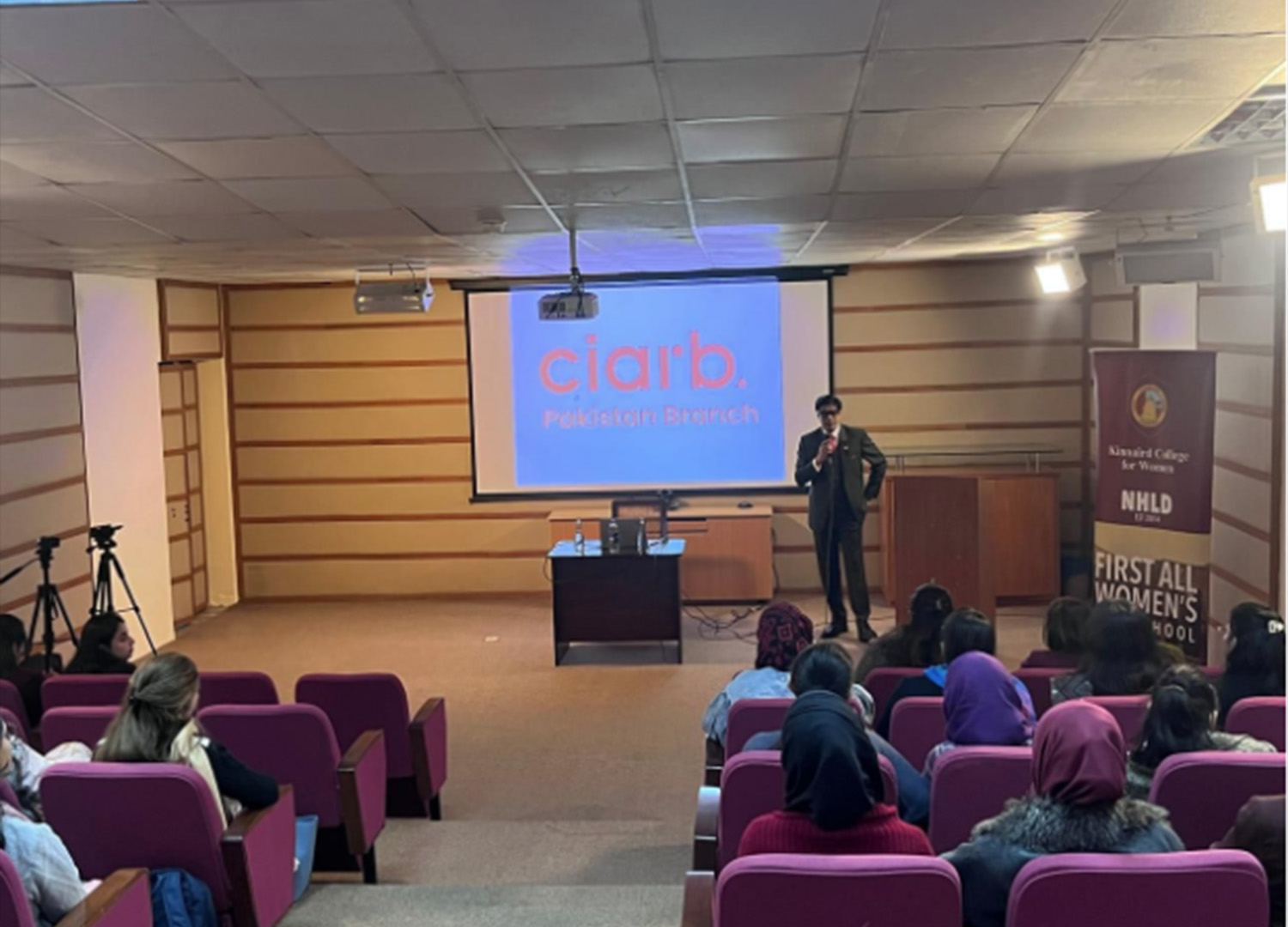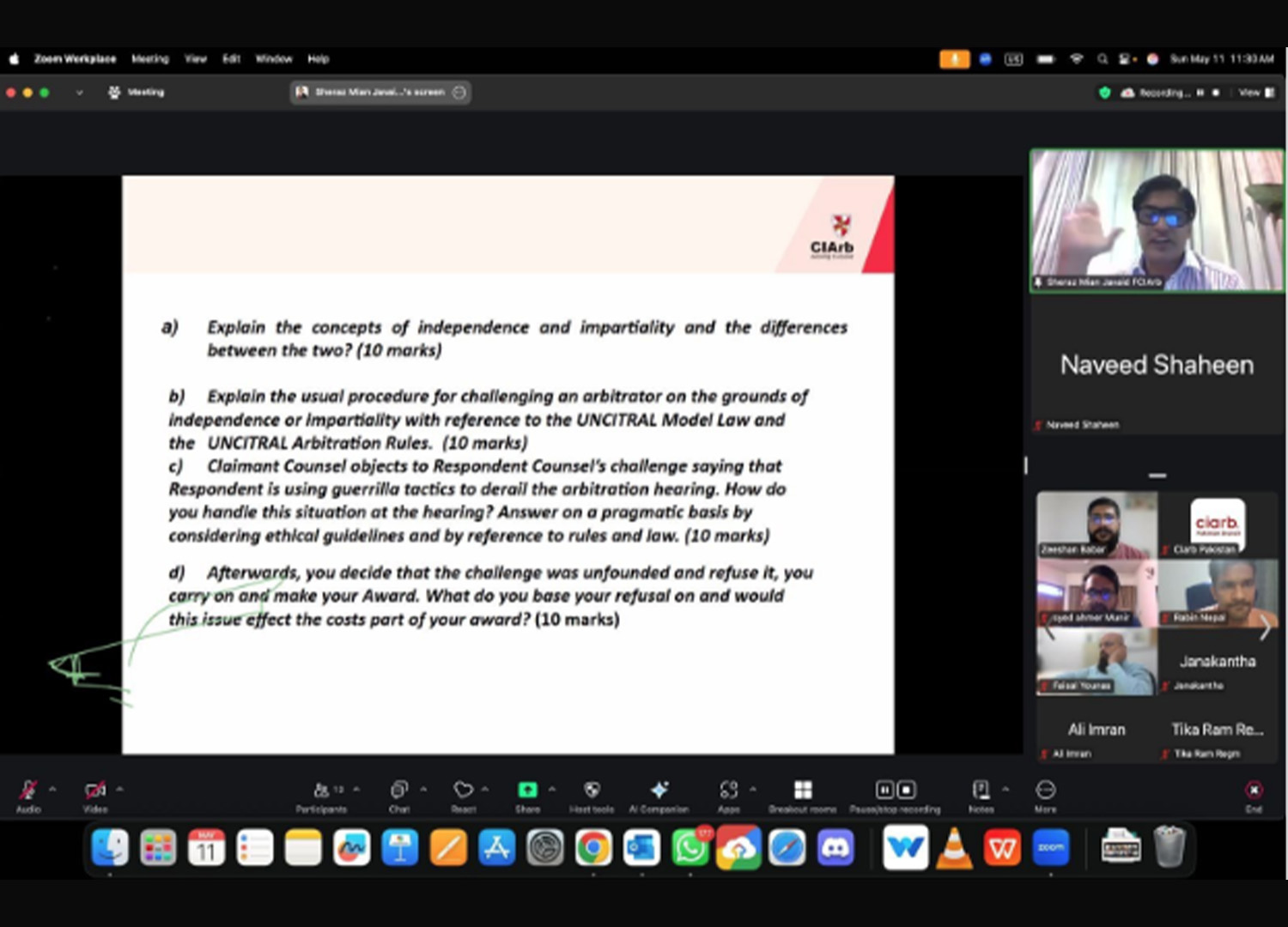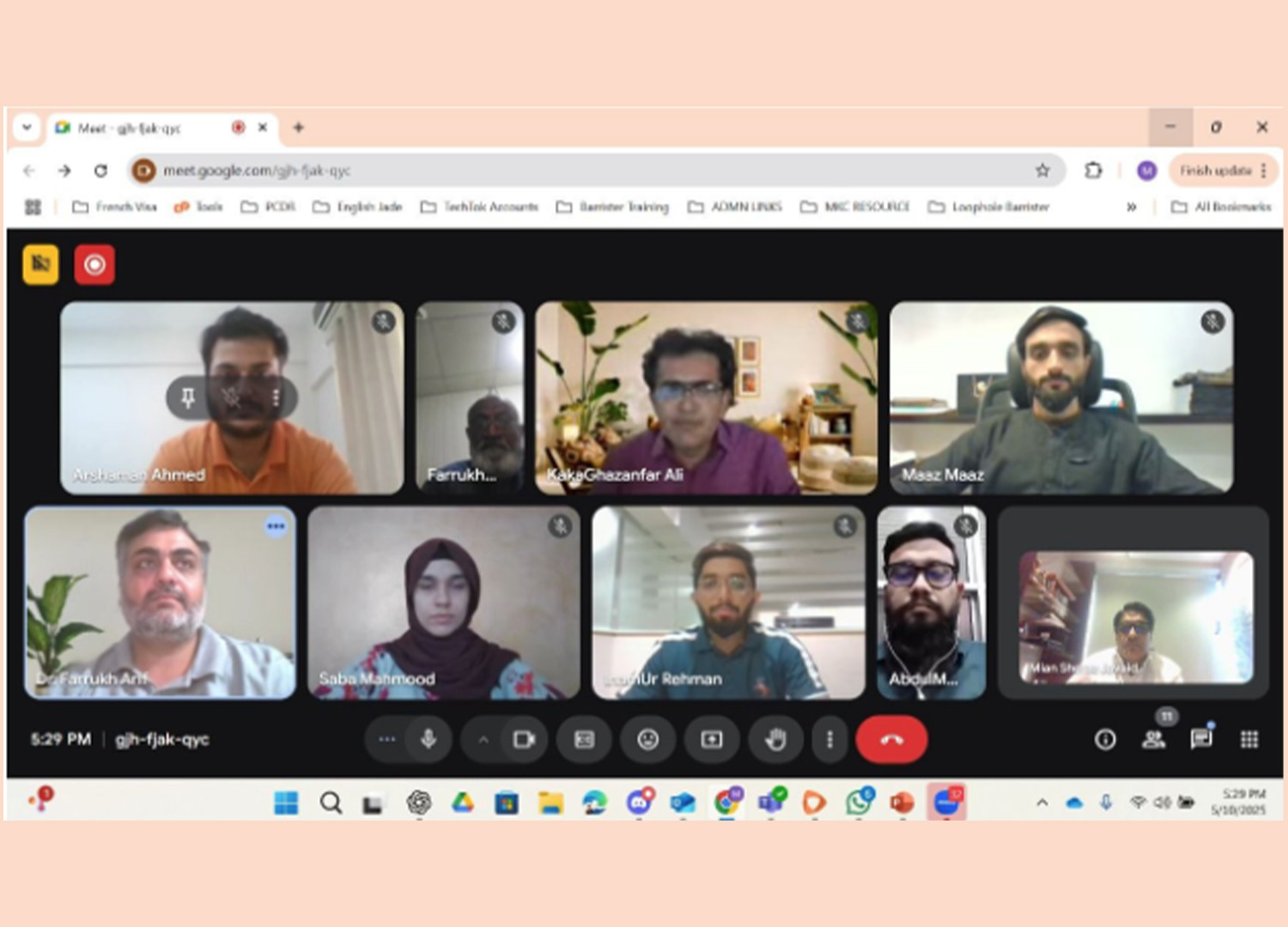Mian Sheraz Javaid Leads Groundbreaking Training for Engineers in Pakistan’s Construction and ADR Sector
In a significant step forward for Pakistan’s construction and engineering sectors, Mian Sheraz Javaid has successfully concluded a pioneering training initiative aimed at empowering engineers to serve as arbitrators. Conducted in collaboration with the Pakistan Engineering Council (PEC), the "Accelerated Route to Fellowship" (ARF) training program is set to have a lasting impact on the way construction-related disputes are resolved in the country.
This milestone training program, which marked the first cohort under the Memorandum of Understanding (MoU) signed between the Chartered Institute of Arbitrators (Ciarb) Pakistan Branch and PEC last year, has been hailed as a game-changer for Pakistan’s dispute resolution landscape. The initiative is especially significant for Mian Sheraz Javaid, whose background as a civil engineer adds a personal touch to this transformative project.
In a statement to the press, Sheraz expressed his pride in the successful execution of the program. "It was truly a privilege to teach Accelerated Route to Fellowship (ARF) to a brilliant cohort of Pakistan's 15 outstanding engineers," he said, adding that the training marks the beginning of a new era for ADR in Pakistan.
Empowering Engineers as Arbitrators
The ARF program is aimed at preparing engineers with the knowledge and tools necessary to deal with arbitration cases, especially in the specialised fields of construction and engineering. Sheraz highlighted that engineers, with their technical expertise and deep understanding of industry-specific challenges, are uniquely qualified to excel in this domain.
"Engineers are ideally suited to act as arbitrators because they possess the technical insight needed to navigate complex construction disputes that often involve intricate details of design, execution, and materials," he explained. "When disputes arise in the construction sector, it is essential that the arbitrator understands these nuances in order to render fair and informed decisions. This is where engineers make a real difference."
Sheraz's comments reflect a prevailing lacuna within Pakistan's ADR infrastructure. Traditionally, arbitrators have not been technical experts in their areas of specialisation and often received inadequate, binding decisions with significant delays in arriving at these resolutions. Introducing engineers into the arbitration process is an attempt to fill this lacuna to ensure that the arbitral decision is based on a thorough understanding of the technical intricacies involved in the case.
The initiative, through this gold-standard training offered by Ciarb, aims to create a cadre of skilled engineer-arbitrators who can bring their specialised knowledge to bear on disputes in construction and engineering. The expected result is an effective ADR system that reduces delays and promotes faster resolutions for parties involved in disputes.
Enhancing ADR in Pakistan’s Construction Sector
Pakistan's construction sector, having grown rapidly during the last several years, is also witnessing increasing disputes. Ranging from matters of building design and execution to material quality and project timeline, these issues are mounting backlogs in the judicial system of the country, making it crucial to have a proper and effective ADR mechanism in place now more than ever.
Sheraz's training initiative is being hailed as part of the solution to this problem. Preparing engineers to act as arbitrators, the program is expected to enhance the overall capacity of ADR mechanisms in Pakistan, especially in cases where technical and engineering considerations require in-depth understanding.
"The impact of this initiative on Pakistan's construction sector is potentially transformative," said Sheraz. "By fostering a skilled group of engineer-arbitrators, we are not only addressing the growing backlog of disputes, but we are also ensuring that these disputes are resolved by professionals who fully grasp the technical intricacies of the industry."
This is likely to accelerate resolution times, decrease project delays, and enhance the confidence of ADR processes in the sector. Engineers, now equipped with the right skills and training, can enter the fray to offer expertise both relevant and insightful, leading to more accurate decision-making and a reduced amount of unnecessary legal battles.
A Collaborative Effort for Professional Growth
Sheraz thanks the Pakistan Engineering Council for playing an instrumental role in the initiative. It is through such support that PEC has facilitated the success of the program, contributing to professional growth among engineers in Pakistan.
"The collaboration between Ciarb Pakistan Branch and the Pakistan Engineering Council has been crucial in bringing this vision to life," Sheraz said. "It is a partnership that benefits not just the individuals involved but the entire engineering profession in Pakistan. This program offers engineers an opportunity to expand their skill sets and contribute to a more efficient and effective ADR framework in the country."
The first batch of ARF graduates, comprising 15 distinguished engineers, is now ready to join the PEC ADR Centre. These engineers will be empaneled as arbitrators and will soon begin contributing to the resolution of disputes within the construction and engineering sectors. This would mark the start of a new chapter in the ADR framework of Pakistan that promises to strengthen the country's capacity for effective dispute resolution and further a more robust and resilient construction industry.
As for the future, Sheraz is optimistic about the continued success of the initiative. "This is just the beginning. We hope to expand this program to include more engineers, more sectors, and eventually create a nationwide network of skilled arbitrators," he said.
Conclusion
Such as the ARF training program pioneered by Mian Sheraz Javaid in conjunction with the Pakistan Engineering Council that marks a strong foray into furthering alternative dispute resolution in Pakistan and is expected, in light of increasingly sought-after technically informed arbitration efficiently in the areas of construction and engineering, both to ease a burden on an already overworked judicial system and to stimulate a more professional and efficient response.
By empowering engineers to take on the role of arbitrators, this program is poised to make a lasting impact on Pakistan’s construction industry, fostering trust in ADR processes and contributing to the country’s broader development goals.



